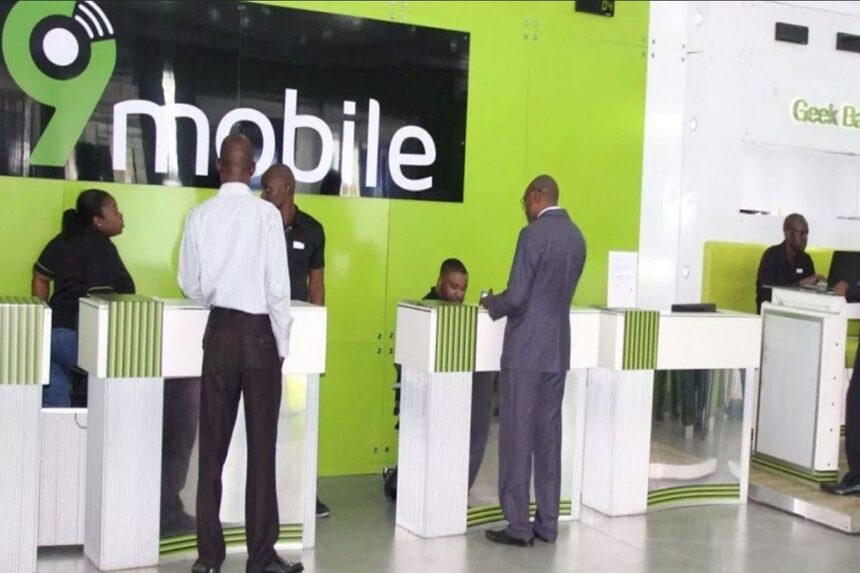9Mobile Experiences Service Outage Amid Fire Incident in Lagos
Nigerian mobile network operator 9Mobile has recently been hit by a significant network outage, which the company attributes to a fire that broke out at its primary data center in Lagos. The incident, which occurred on the night of December 17, 2024, has caused widespread disruptions in services for its subscribers, particularly affecting voice, data, and internet access. The outage was especially impactful in Lagos and the South-Western region of Nigeria.
In addition to the fire, 9Mobile acknowledged the effect of multiple fiber cuts on its network infrastructure, which compounded the situation. These issues have led to widespread complaints on social media, as customers struggled to access essential services.
The Role of the Lagos Data Center Fire
9Mobile’s statement highlights that the fire at the Lagos data center was the primary cause of the service interruptions. The fire caused severe damage to the facility, leading to disruptions in services not only in Lagos but also in the broader South-Western region of Nigeria. The company commended the swift response from the Lagos State Fire Service, which helped prevent further damage and loss of service.
Although the cause of the fire remains undisclosed by 9Mobile, the operator has emphasized that it is working closely with authorities to investigate the incident fully. As one of the major data centers that support mobile and internet services across the region, the loss of this facility had a significant impact on 9Mobile’s ability to maintain its usual service levels.
Fiber Cuts and Vandalism Exacerbate the Outage
Alongside the fire incident, 9Mobile pointed to ongoing issues with fiber cuts across its network, which have further hampered its ability to restore services. According to the operator, fiber cuts on backbone links in Lagos were responsible for a nationwide data outage. The company also revealed that additional vandalism-related incidents in Lagos and Abuja resulted in service disruptions in the southwestern and northern regions of Nigeria.
These fiber cuts, which are often caused by vandals targeting critical telecommunications infrastructure, have been a recurring challenge for mobile network operators in Nigeria. Such incidents severely affect the reliability of mobile services, particularly in densely populated urban areas.
Impact on 9Mobile’s Customers
The outages have not only frustrated 9Mobile’s customers but have also raised concerns about the resilience of Nigeria’s telecom infrastructure. With over 11 million subscribers, 9Mobile is one of the major players in Nigeria’s highly competitive mobile market. The company’s customers have voiced their frustration online, with many taking to social media to complain about the lack of service during the disruption.
9Mobile’s statement included an apology to its customers, acknowledging the inconvenience caused by the service outages. The company expressed its commitment to resolving the issues as quickly as possible and to preventing future disruptions. It also emphasized that its technical teams were working around the clock to restore full service to affected areas.
9Mobile’s Apology and Commitment to Improvement
In a statement issued after the fire and network disruptions, 9Mobile expressed deep regret for the inconvenience caused to its customers. The company assured subscribers that it was actively working to address the root causes of the outage and to restore services to full capacity. The carrier also acknowledged that the fire, coupled with the previous fiber cuts, had significantly impacted its ability to provide uninterrupted voice, data, and internet services.
“We understand the frustration these disruptions have caused and deeply regret the inconvenience,” 9Mobile stated, expressing gratitude for the intervention of the Lagos State Fire Service.
Looking Ahead: What Can 9Mobile Do to Prevent Future Outages?
The recent series of outages, including the fire incident and fiber cuts, has put a spotlight on the vulnerability of Nigeria’s telecom infrastructure. As 9Mobile works to recover from the disruptions, many are wondering what measures the company will put in place to prevent such issues in the future.
One potential solution lies in improving the security and resilience of critical infrastructure, including data centers and fiber networks. The company could consider investing in more robust fire suppression systems, improved physical security measures, and backup systems to prevent service outages in the event of unforeseen incidents. Additionally, collaborating with government and industry stakeholders to address the issue of telecom infrastructure vandalism could be another key step in reducing the frequency of fiber cuts.
FAQ
What caused the 9Mobile outage?
The outage was primarily caused by a fire at 9Mobile’s main data center in Lagos, combined with multiple fiber cuts due to vandalism. These factors led to disruptions in voice, data, and internet services for the carrier’s customers.
How long did the 9Mobile outage last?
The outage began on December 17, 2024, following the fire, and lasted for several hours, with service restoration efforts underway. The company continues to work on full recovery.
Is 9Mobile planning to improve its network after the outage?
Yes, 9Mobile has expressed its commitment to addressing the root causes of the outage and improving its network infrastructure to prevent similar disruptions in the future. This includes measures to enhance data center security and reduce the impact of fiber cuts caused by vandalism.
How can telecom companies prevent fires in data centers?
Telecom companies can prevent fires by investing in modern fire suppression systems, ensuring regular safety inspections, and implementing robust disaster recovery plans. Regular training and awareness programs for data center staff are also essential in minimizing fire risks.
What is the impact of fiber cuts on mobile networks?
Fiber cuts can severely disrupt mobile network services, leading to data outages, slow internet speeds, and problems with voice and video calls. They are often caused by vandalism or accidental damage, affecting large areas and sometimes the entire network.
